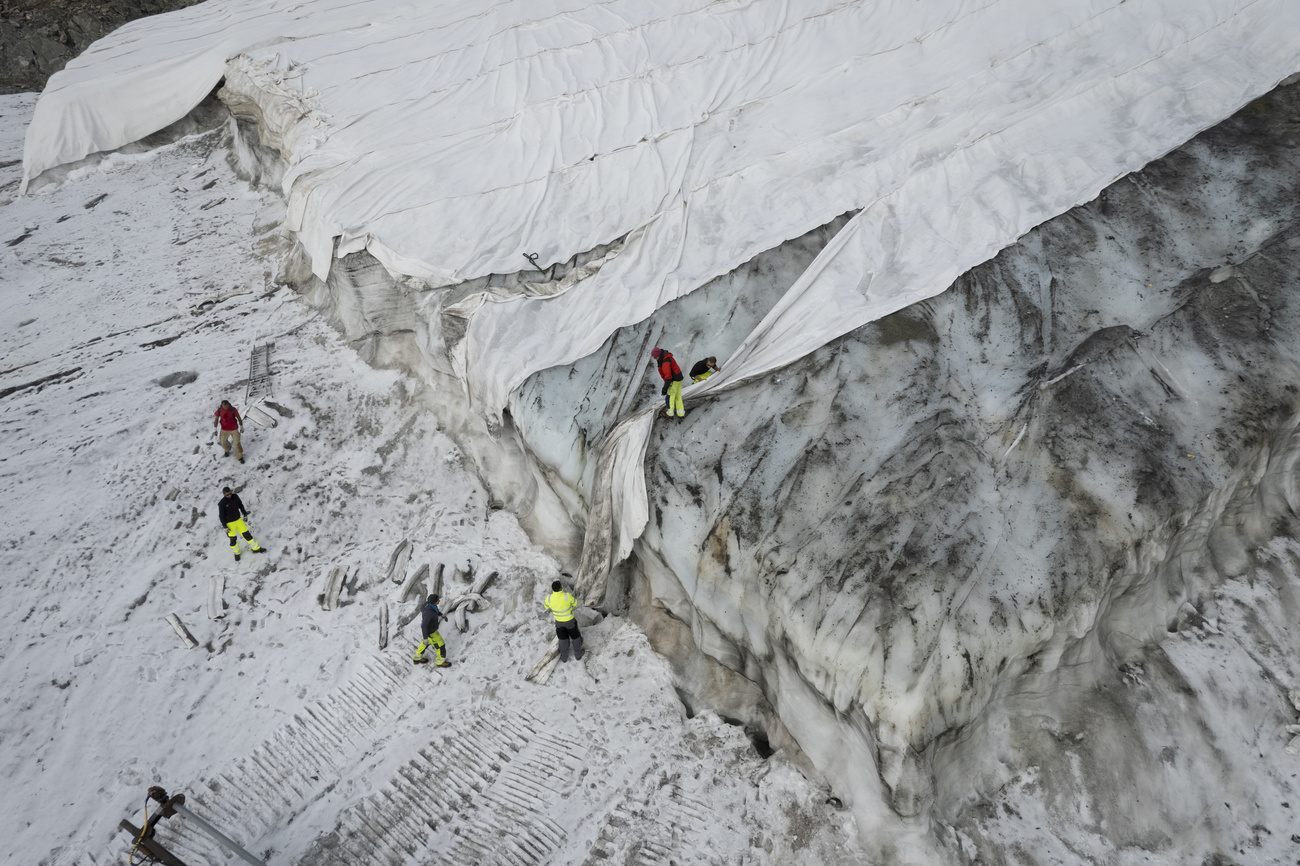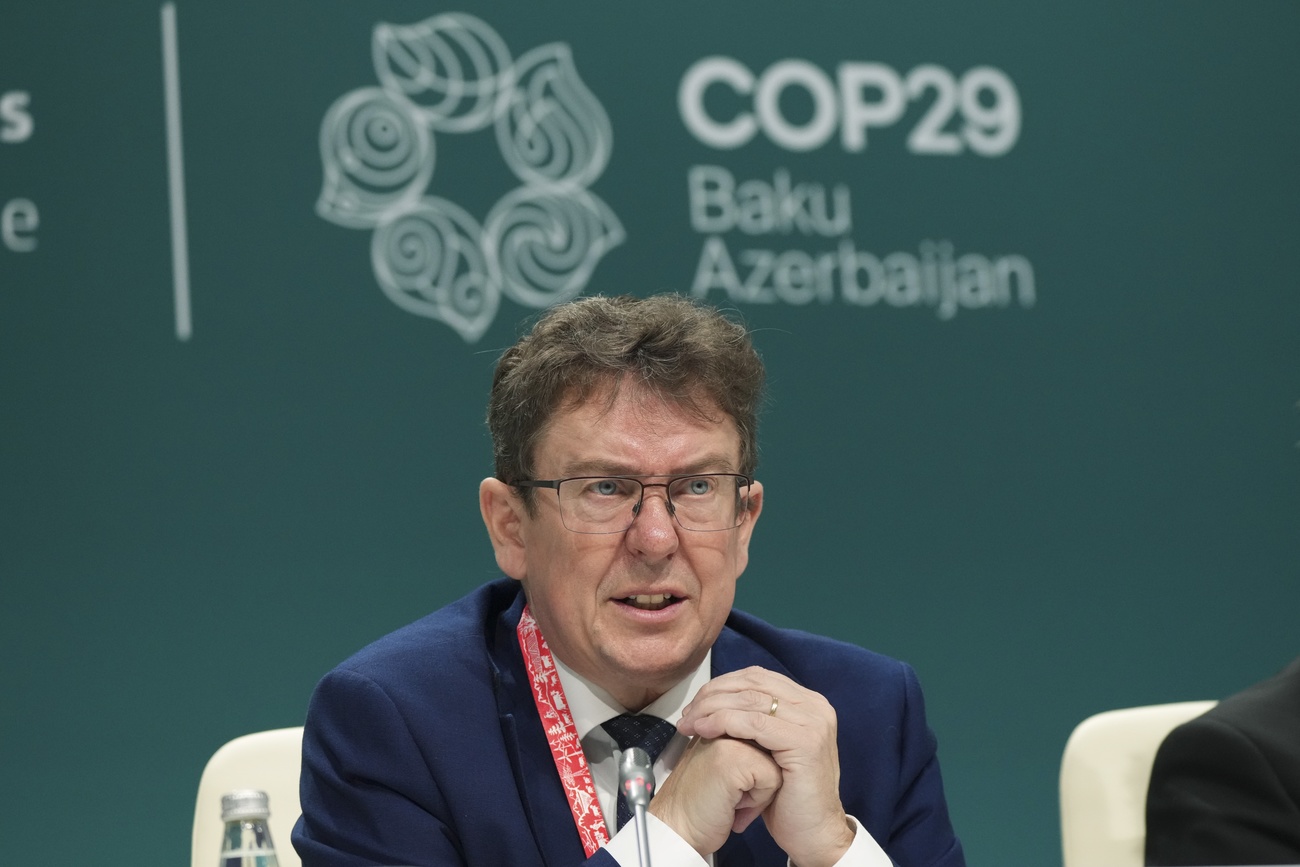
Switzerland rejects tripling of state-sponsored climate aid

Switzerland cannot afford to triple payments from state funds to support climate initiatives in poorer countries, says Swiss environment minister Albert Rösti.
+Get the most important news from Switzerland in your inbox
A deal was recently struck at the COP29 climate conference in Baku for industrialised countries are to support less affluent nations to the tune of $300 billion – triple the current amount of $100 billion. The funding would support climate protection measures in various countries.
The last-ditch compromise deal is well below the demands of the developing countries, with Nigeria declaring $300 billion is an “insult”.
+ How new carbon offset rules will impact Switzerland
Speaking to Swiss public broadcaster SRF, Rösti insisted that Switzerland will not pay any more money from its federal coffers. “I think it is smarter to name an amount that will actually be paid out later, rather than setting utopian figures where nothing will happen,” said Rösti, who was involved in the Baku negotiations.
“We are currently working on a domestic restructuring program. We have to comply with the debt brake and we do not actually expect to use more public funds for this.”
+ Does Switzerland contribute fair share towards climate finance?
This means that a potential Swiss funding increase would have to come through private investments.
Who foots the bill?
It remained unclear in Baku who would foot the $300 billion bill. No country has committed to a specific amount. Switzerland has so far paid $700 million for climate protection in developing countries.

More
Environment minister outlines Swiss efforts to limit global warming
Switzerland has campaigned for the circle of donor countries to be expanded to include nations such as China, Saudi Arabia and Singapore. In Baku, it was also agreed that loans from development banks could also be counted towards climate aid. This means that the amount increases on paper – without the countries having to commit more money.
With the 2016 Paris Climate Agreement, Switzerland has committed itself to halving its CO₂ emissions by 2030 compared to 1990 levels. “If we can comply with the measures stipulated in the CO₂ law, we should be able achieve this target,” says Rösti. But only because Switzerland will offset a third of its CO₂ emissions abroad – with projects in poorer countries.
The business with CO₂ certificates is increasingly coming under criticism: the impact of many projects on climate protection is controversial.
The climate summit in Baku has achieved something on this point, says Rösti: An international register will be introduced that intends to prevent double counting.
Adapted from German by DeepL/mga
This news story has been written and carefully fact-checked by an external editorial team. At SWI swissinfo.ch we select the most relevant news for an international audience and use automatic translation tools such as DeepL to translate it into English. Providing you with automatically translated news gives us the time to write more in-depth articles.
If you want to know more about how we work, have a look here, if you want to learn more about how we use technology, click here, and if you have feedback on this news story please write to english@swissinfo.ch.

In compliance with the JTI standards
More: SWI swissinfo.ch certified by the Journalism Trust Initiative




































You can find an overview of ongoing debates with our journalists here . Please join us!
If you want to start a conversation about a topic raised in this article or want to report factual errors, email us at english@swissinfo.ch.